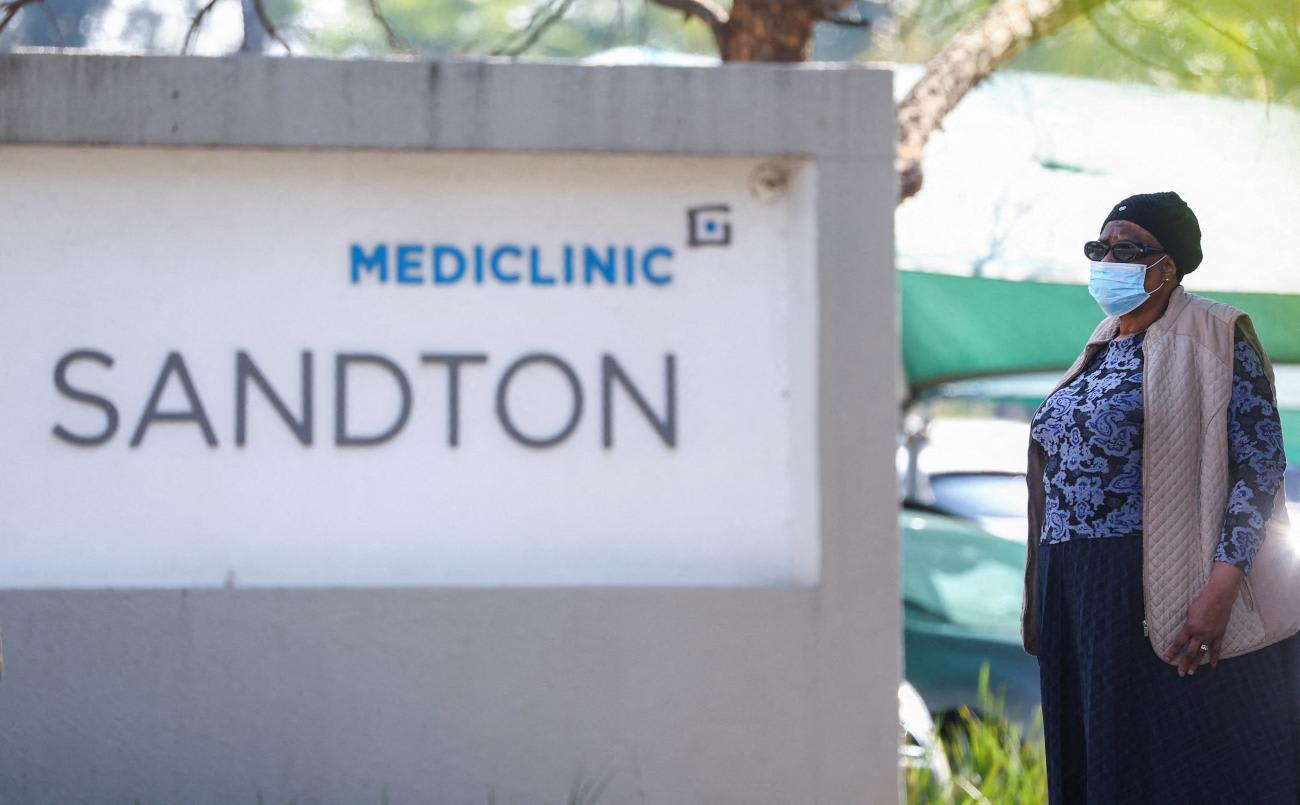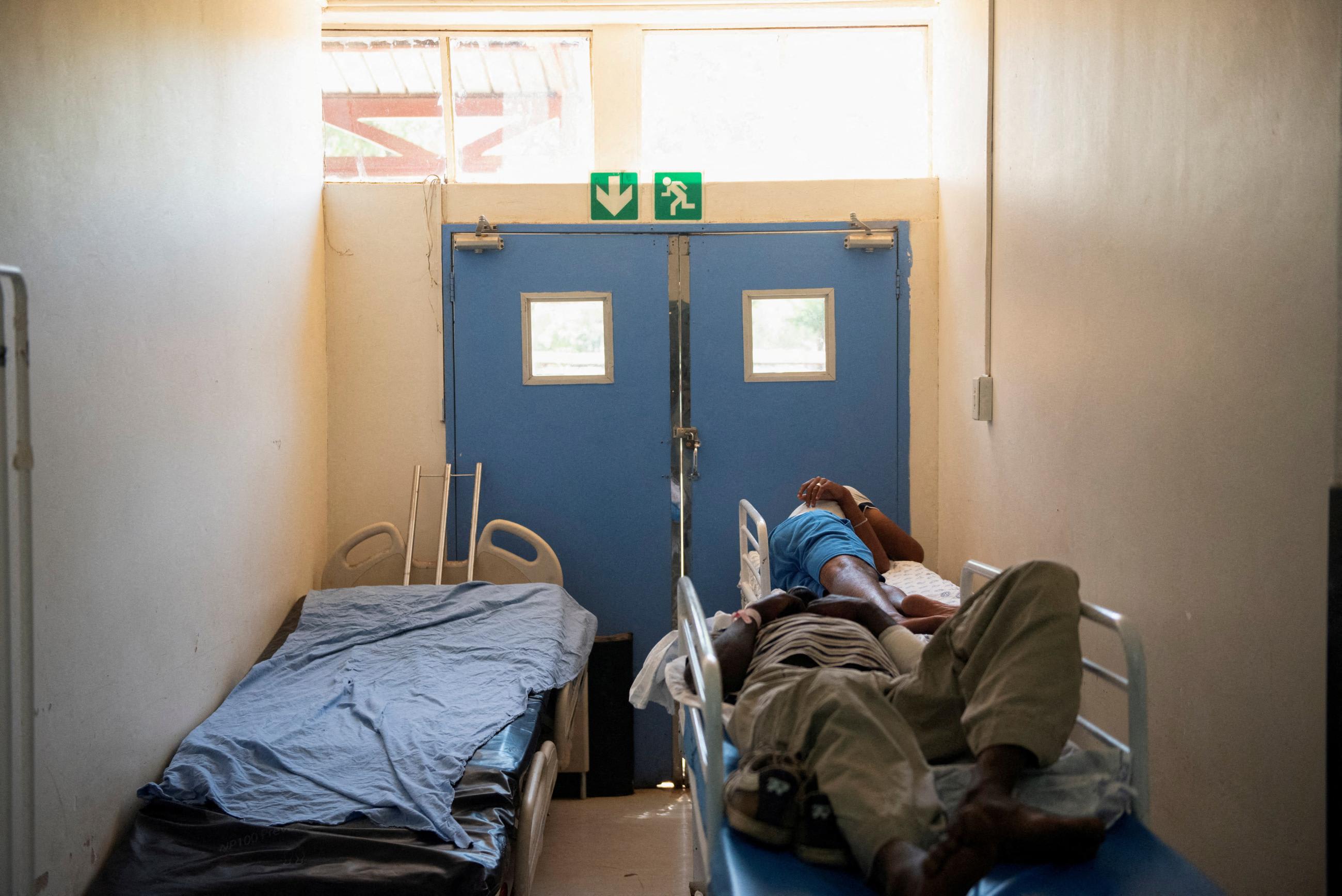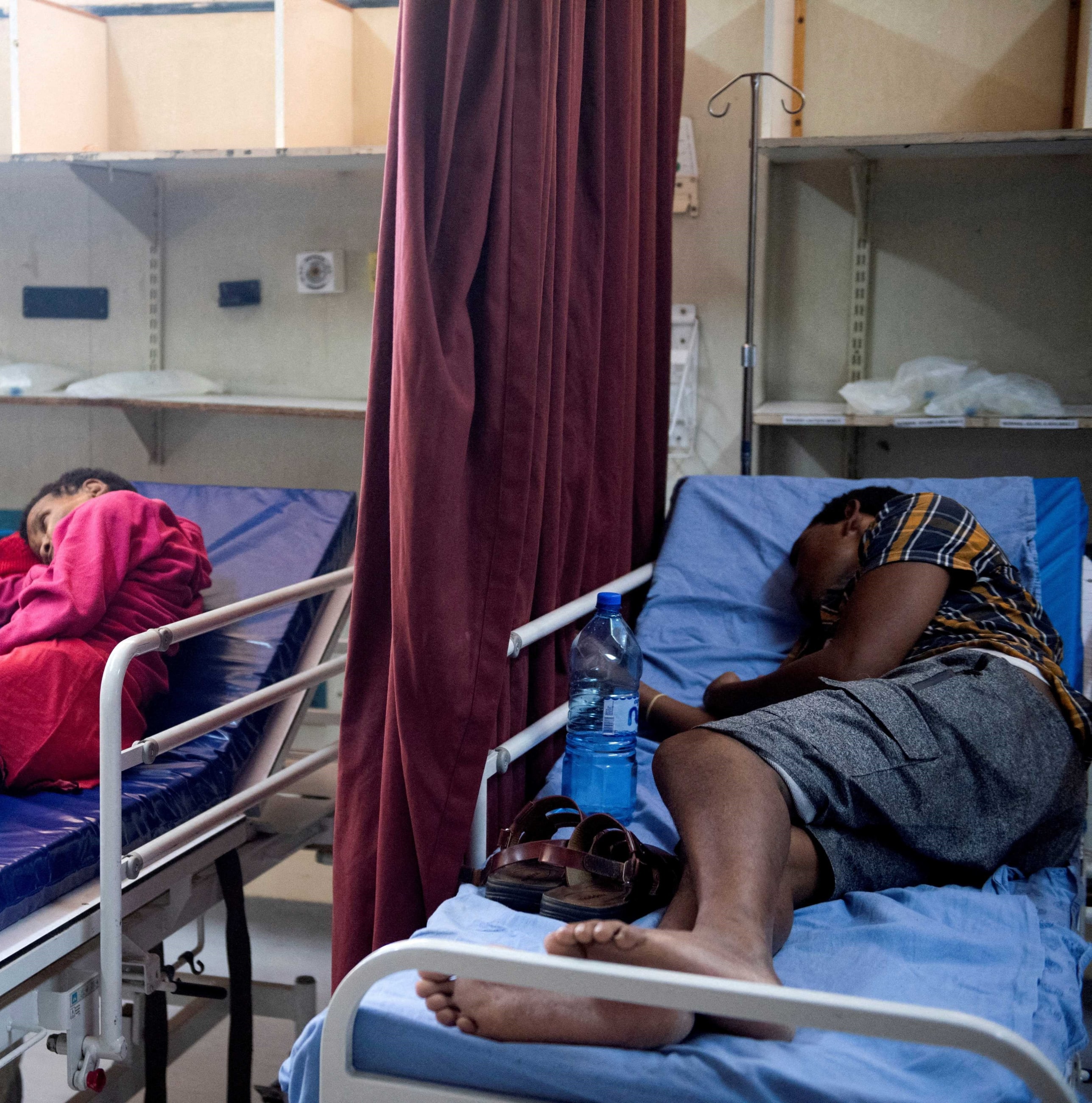South Africa is grappling with growing concern over medical negligence after facing a significant increase in the size and number of claims over the past decade across both public and private sectors. Incidents of misdiagnosis, surgical errors, and inadequate care have raised alarm among the public and health-care professionals alike.
According to the South African government, payouts for medical negligence claims increased by an average of 23% each year from 2014 to 2020. Last month, a briefing between South Africa's Department of Health and its auditor-general revealed that medicolegal claim payouts remain high, totaling 4.12 billion rand ($235 million) over the last three years. The auditor-general stated that payments affected the budgets of public facilities, hurting the ability of the sector to deliver quality health-care services.
Larisse Prinsen, a law lecturer in South Africa, told Think Global Health (TGH) that clinical errors, mismanagement, lack of accountability, and inadequate facilities and equipment were the primary causes of medical negligence in the country. She highlighted the pressure on health-care professionals due to understaffing and insufficient resources, which can lead to mistakes.
One case is that of Bamby Manamela, a retired teacher who experienced a devastating ordeal in 2009 after a fall at work. Despite initial examinations suggesting no significant harm, it was later discovered that she had injured her uterus, necessitating its removal to prevent life-threatening complications.
Speaking to TGH, Manamela said that following surgery, she continued to consult with her gynecologist until she recovered. She soon began experiencing severe pain, especially during urination. "After numerous consultations, a urologist revealed that my kidney had been damaged during the previous surgery," she said.
"When I presented these findings to my gynecologist, he denied any responsibility," Manamela explained. As her condition worsened, she said, the urologist recommended removing the damaged kidney because of the risk of cancer. She underwent kidney removal surgery hoping for better health, but the worst was yet to come.
Her health challenges, Manamela said, were exacerbated by the trauma of her injuries and the subsequent legal battles. As she explained, although she sought legal representation for medical negligence, her attorneys exploited her by taking her money even while failing to get compensation for her. "These events took a severe toll on myself and my family. In 2014, my mental health deteriorated, leading to the prescription of mental health care."
Governments, advocates, media, and academics have argued for years that money spent on medical claims contributes to the failing health-care system
Moreover, she told TGH that she has asked the same lawyers she claims exploited her to sign legal documents once again this year, but they have not been forthcoming. As a result, she has yet to receive justice and compensation for her injury.
Governments, advocates, media, and academics have argued for years that money spent on medical claims contributes to the failing health-care system because it takes resources from other priorities.
Speaking with TGH, Foster Mohale, the spokesperson for the South African National Department of Health, outlined the steps the department is taking to address the problem of medical malpractice claims.
"There is no specific budget set aside for legal liabilities resulting from medicolegal claims because negligence is not a planned action," Mohale explained. "Thus the department is compelled to reprioritize some of the priorities in order to honor the court judgments to settle medicolegal claims, where the courts rule in favor of the other parties."
Medical Negligence in South Africa
Think Global Health also spoke with Gary Austin, a medical negligence and personal injury law specialist based in Johannesburg, who provided insight into the prevalence of medical negligence cases in South Africa and how they are handled.
According to Austin, "Medical negligence, especially in state hospitals, is frequent and rife. The total amount of medicolegal claims lodged against the state as of March 31, 2023, was approximately 68 billion rand [$3.8 billion]."
Although Manamela's case is severe, Austin indicated that it is relatively minor relative to cases involving babies who have suffered brain injuries at birth due to hospital negligence. He emphasized these cases' substantial financial burden on the state, noting, "On average, each of these claims could be worth approximately 20 million rand [$1.1 million]. [Some] 1.42 billion rand [$80 million] in claims was actually paid out in 2022 to 2023."
Austin pointed out the complexities involved in pursuing medical negligence cases, including the need for expert witnesses and the lengthy litigation process, which often takes up to six or seven years. He criticized the state's handling of these cases, citing inefficiencies and a lack of preparation that lead to delays and unnecessary costs. "Billions of rands are wasted in defending indefensible cases," he said, adding that these funds should be used instead to improve the health-care system.
According to Austin, systemic issues within the health-care and justice systems contribute to the prevalence of medical negligence and delays in resolving cases. "The more problems that arise, the more negligence is caused. The heads of health do not take responsibility for the inefficiency of their departments."
TGH reached out to Mediclinic, which stated that it has no record of Manamela's 15-year-old incident but invited her to provide her medical records and complaint for further investigation, clarifying that the doctor involved is an independent practitioner, and that they would respond if adverse findings are made against him.

Meanwhile, the Health Professions Council of South Africa (HPCSA) confirmed that Manamela had lodged a complaint in 2022. Phumla Sekhonyane, the head of communications at HPCSA, told TGH that their client was not guilty.
Underlying Causes and Impact of Medical Negligence
A research paper titled "Brain Drain In South Africa Affecting Health Care" published earlier this year highlights that South Africa's health-care system is facing a crisis due to the brain drain phenomenon, when skilled medical professionals emigrate to wealthier countries. This loss of talent not only affects the quality of health care in South Africa but also contributes to a wider skill shortage across the continent.
"Medical negligence claims significantly impact the South African health-care system by diverting funds away from essential services," law lecturer Larisse Prinsen explained to TGH. She also noted how the departure of skilled medical professionals leads to reduced expertise and increased workloads for those who remain. "The exodus of skilled medical professionals exacerbates the issue of medical negligence in South Africa."
According to Prinsen, other factors contributing to delayed diagnoses and medical errors include inefficient referral systems, resource constraints, and administrative delays. "The introduction of advanced medical technologies increases the potential cost of negligence claims due to higher expectations, meaning that patients expect better outcomes from advanced treatments, and any failure can lead to significant claims."
She further said that "costs are increased [because] advanced procedures are often more expensive, so mistakes in these areas result in higher compensation demands. This also means that when calculating future losses, a longer life expectancy needs to be accounted for which means that claim amounts are higher."
Prinsen explained that patients facing medical negligence should seek legal counsel, keep detailed records, and report the incident to relevant authorities. "Legal reform can help address medical negligence more effectively by streamlining processes, establishing specialist courts, mandating alternative dispute resolution—less costly methods to resolve medical claims, such as mediation, arbitration, and conciliation—or by improving accountability," she noted. "This is, however, a complex and multifaceted problem, and as such, a single solution will not be sufficient."
The exodus of skilled medical professionals exacerbates the issue of medical negligence in South Africa
Larisse Prinsen
The South African Law Reform Commission has introduced a three-tiered medicolegal claims strategy to address the issue of medical negligence in South Africa. Prinsen said that more should be done: "The strategy is a good starting point but is not a one-stop fix-all solution. That being said, merely starting to implement this strategy, which has not really been done properly, will already improve the medicolegal claim landscape in South Africa."
Department of Health's Response
According to South African National Department of Health spokesperson Mohale, the agency's priority is to mitigate rising medicolegal claims by addressing contributing factors and improving patient safety. Mohale told TGH that adjusting the budget for medical-legal claims is not necessary: "Patient safety is our major concern and the central core of the provision of health-care services."
Mohale also highlighted the issue of fraudulent claims and the department's collaboration with law enforcement agencies to investigate such cases.
The department is implementing measures such as electronic health record systems to prevent the theft of patient records and improve record-keeping and communication, Mohale explained.
He disputed the notion that staff shortages, skills shortages, and equipment issues are the main contributors to medicolegal claims, stating that most claims relate to alleged birth injuries. "Shortage of staff, skills shortage, and equipment are not the main contributing factors to medicolegal claims," Mohale asserted. "Most of these claims relate to alleged birth injuries and damages on the basis that the claimant's child has cerebral palsy as a result of fetal distress."
"The South African Law Reform Commission has undertaken an investigation on various interventions such as mediation; contingency fees; the common law rule of 'once and for all'; the periodic or staggered payment instead of a lump sum payment among others," he noted.
"Because most claims are for future medical expenses, and we believe this will go a long way to alleviate budgetary pressures of the Provincial Departments of Health," Mohale said.













